Google Calendar Integration
This is a step-by-step example of setting up a Webhook in Flotes to schedule our next study date, as a Google Calendar Event, when we complete a notebook study session. This will utilize Zapier, a free web application for creating automations.
Creating Your First Webhook
Section titled “Creating Your First Webhook”Navigate to https://zapier.com, create an account if you don’t already have one (it’s free).
- Create: Press the “Create” button to create a new “Zap”.
- Trigger: Select Webhooks by Zapier
- Event: Select Catch Hook
- Configure: If you see “Pick off a Child Key”, you can skip this step.
- Copy URL: Copy the URL for Your Webhook URL
- After copying the URL, return to Flotes and begin the next section.
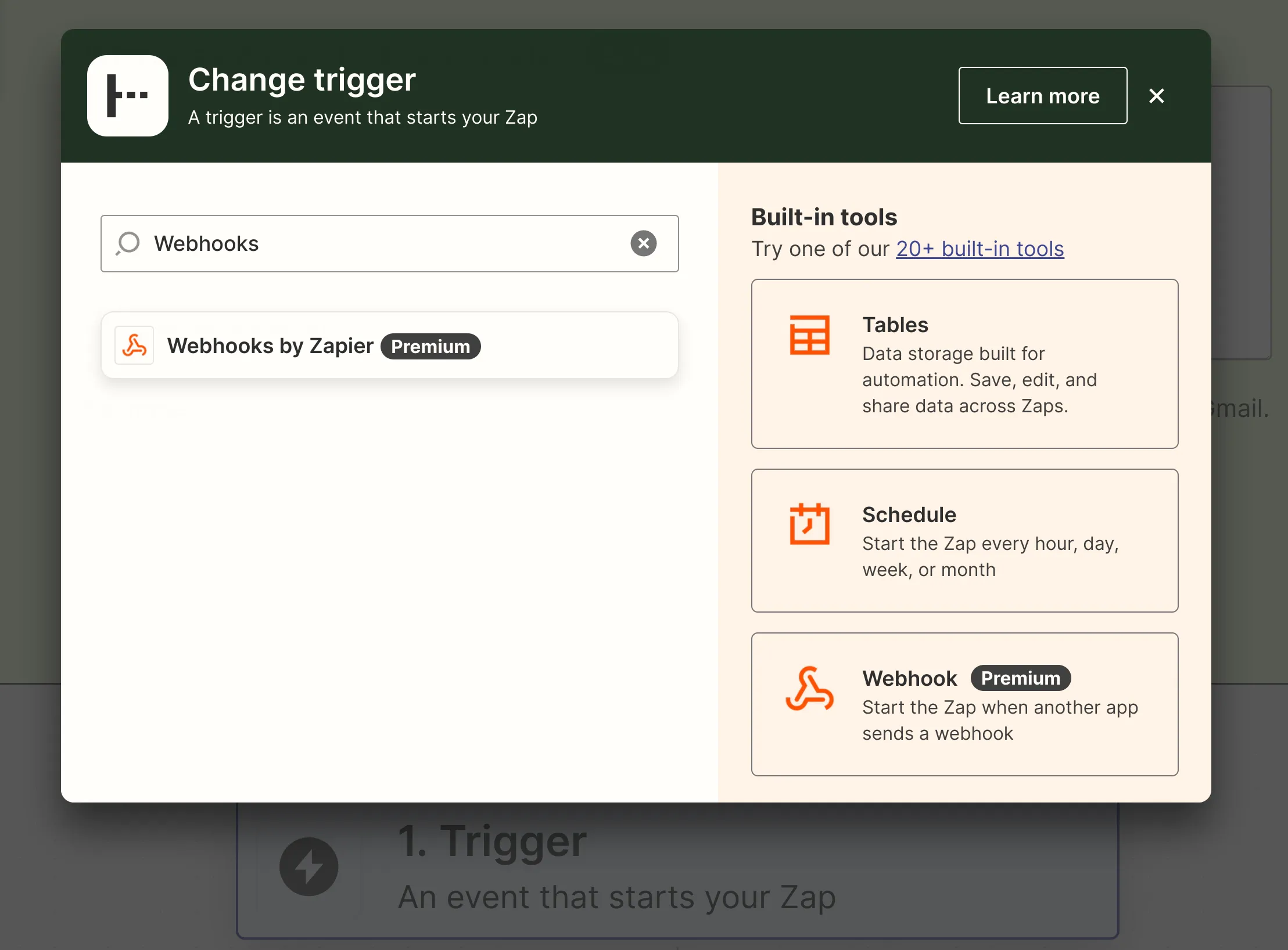
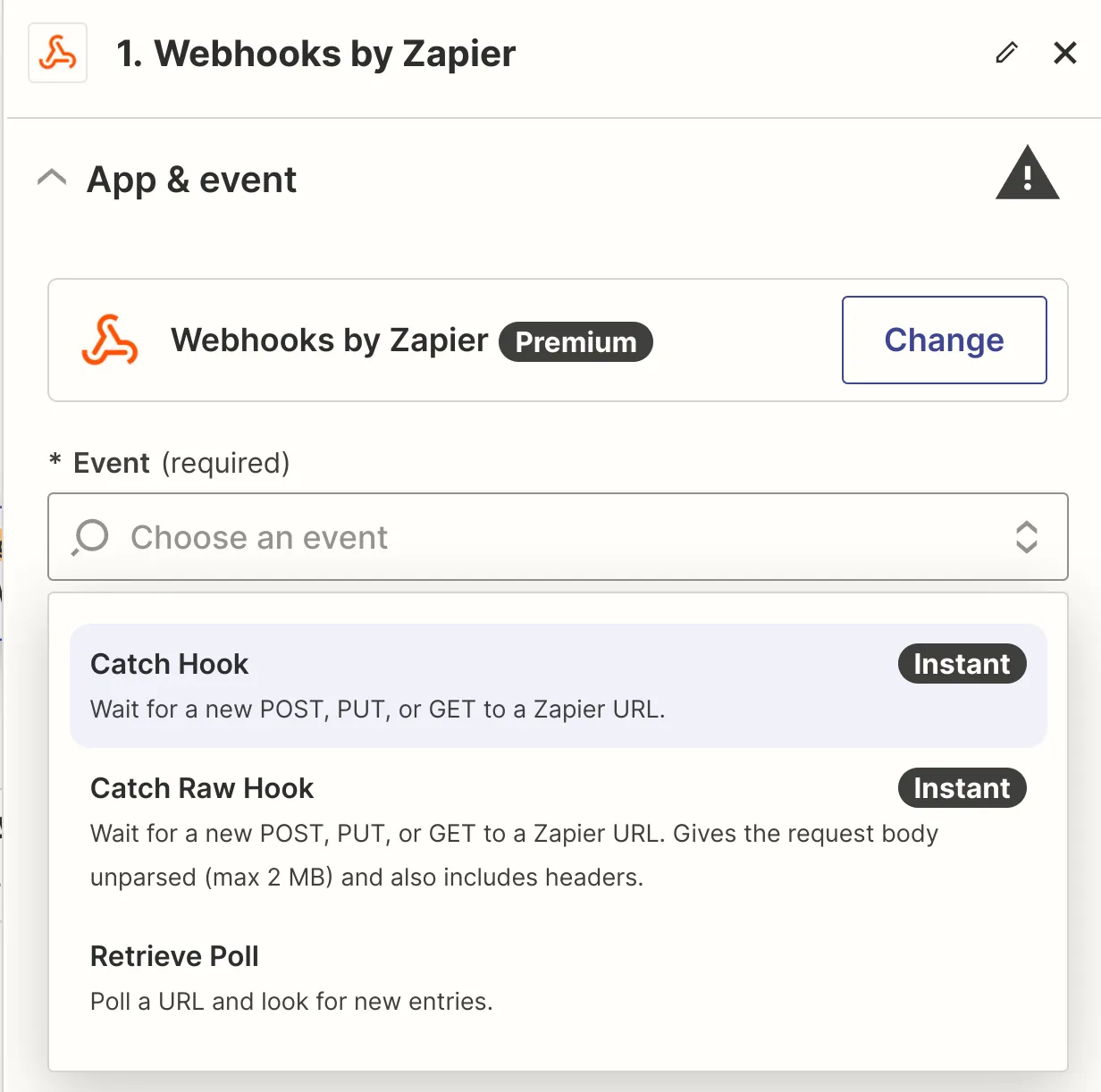
Configuring the Webhook in Flotes
Section titled “Configuring the Webhook in Flotes”Open Flotes and navigate to your Webhook configuration (settings —> webhooks).
- Paste Webhook URL: Paste the URL into the input labeled Study Complete.
- Test: Press the Test button, you should see: Success! - Make sure the request was received
- Verify: In Zapier, you should see a test record found.
- Continue: Press Continue with selected record
- In the next section, we’ll configure Google Calendar
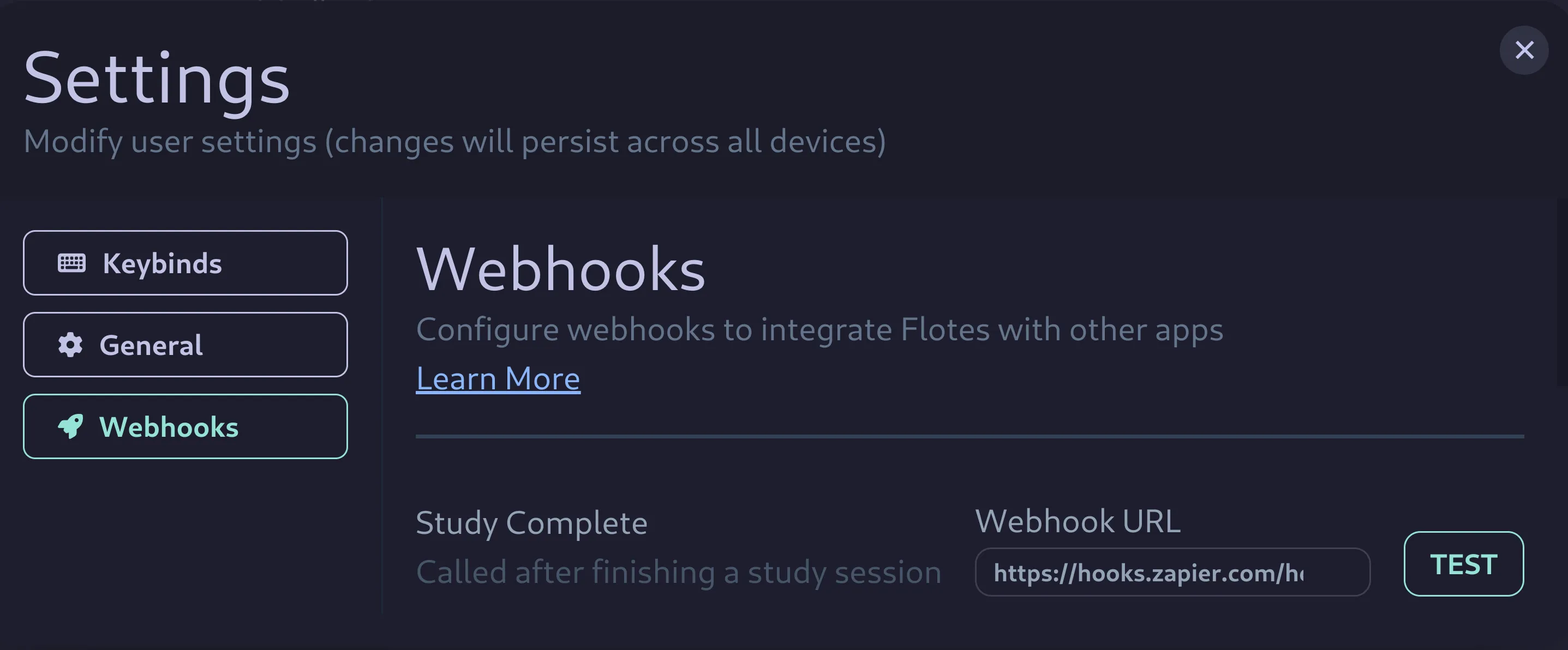
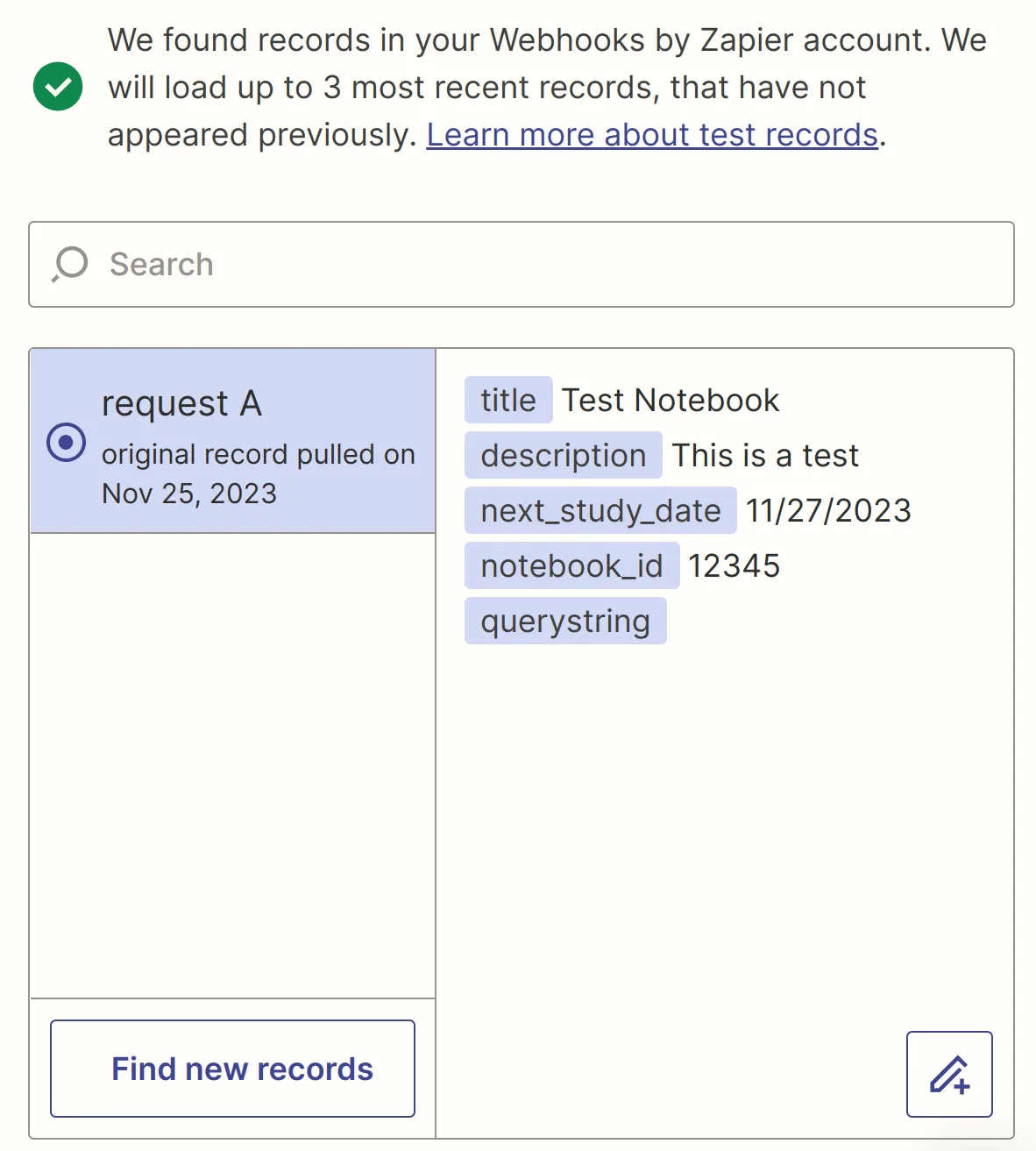
Setting up Google Calendar
Section titled “Setting up Google Calendar”In Zapier, after pressing Continue with selected record, search for and select Google Calendar.
- Authentication: You may be prompted to authenticate after selecting.
- Event: Select the type of Google Calendar event you want to execute. For our example, choose Create Detailed Event.
- In the next section, we’ll configure what information we use from Flotes to create the event.
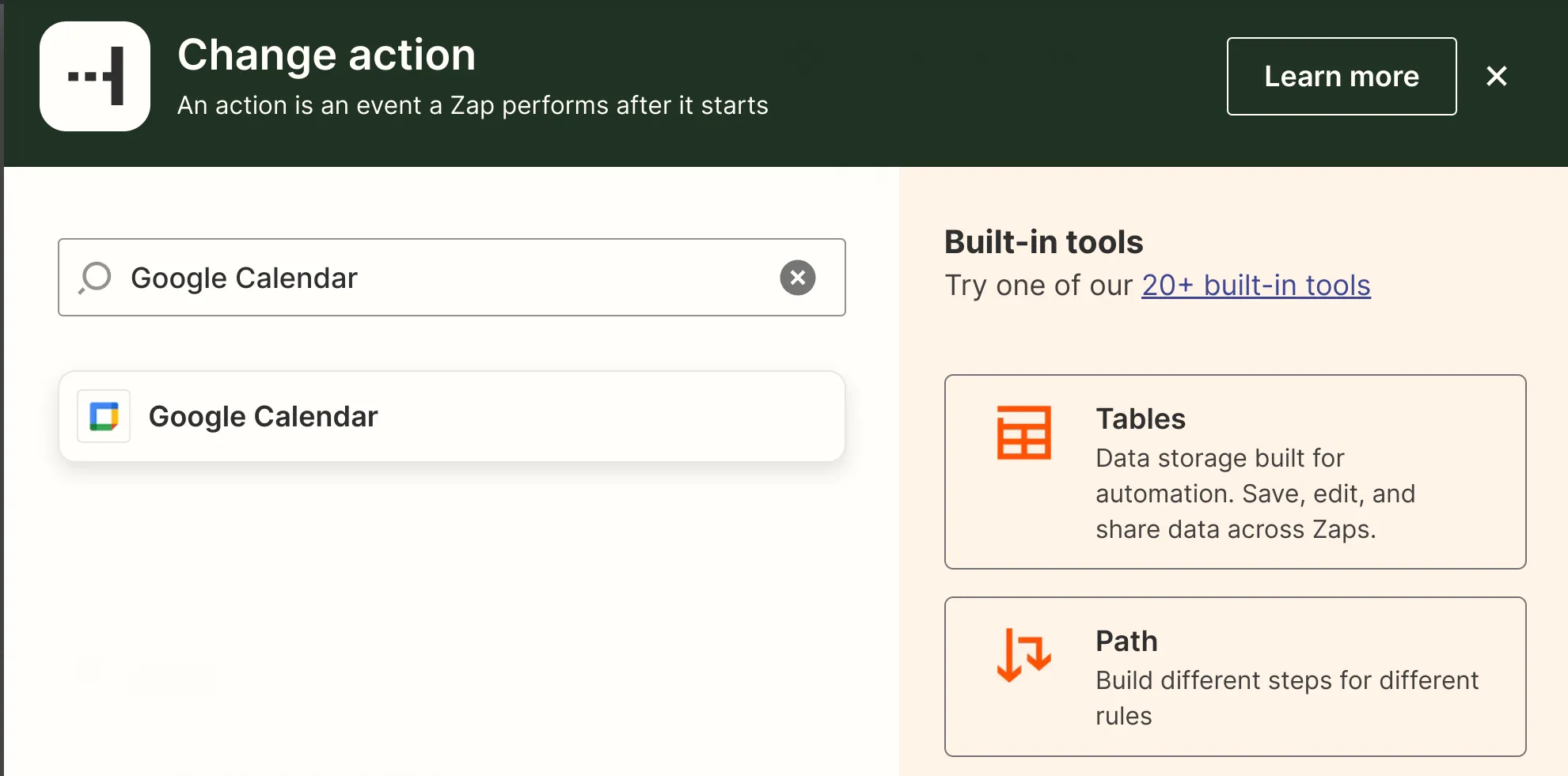
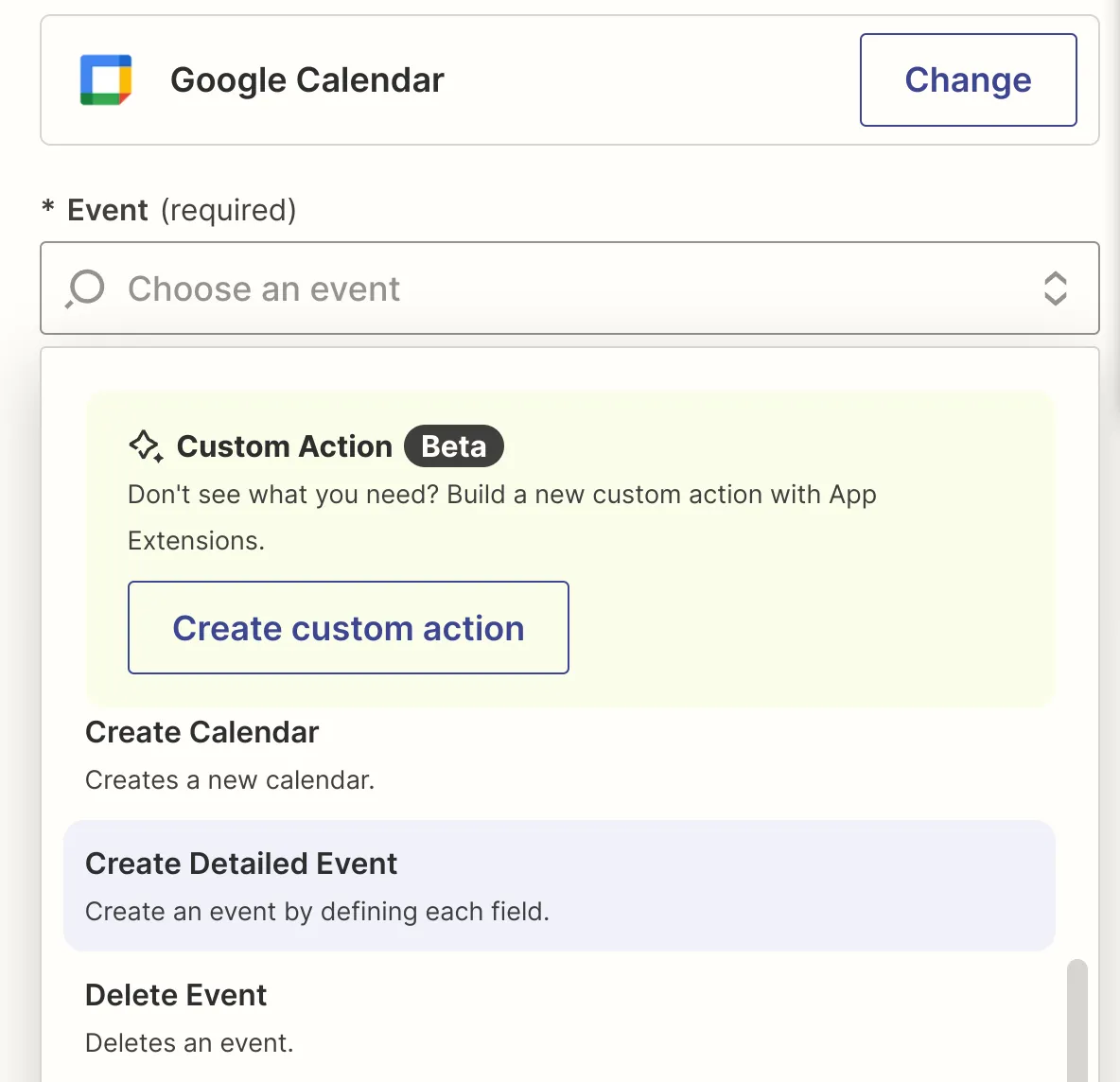
Setting Values
Section titled “Setting Values”In Zapier, when filling out the fields for the calendar, type /. This will list all of the fields from our test payload. You can add any formatting or plain text around those fields usage that you want.
- Once you’re happy with the configuration, continue to the next section.
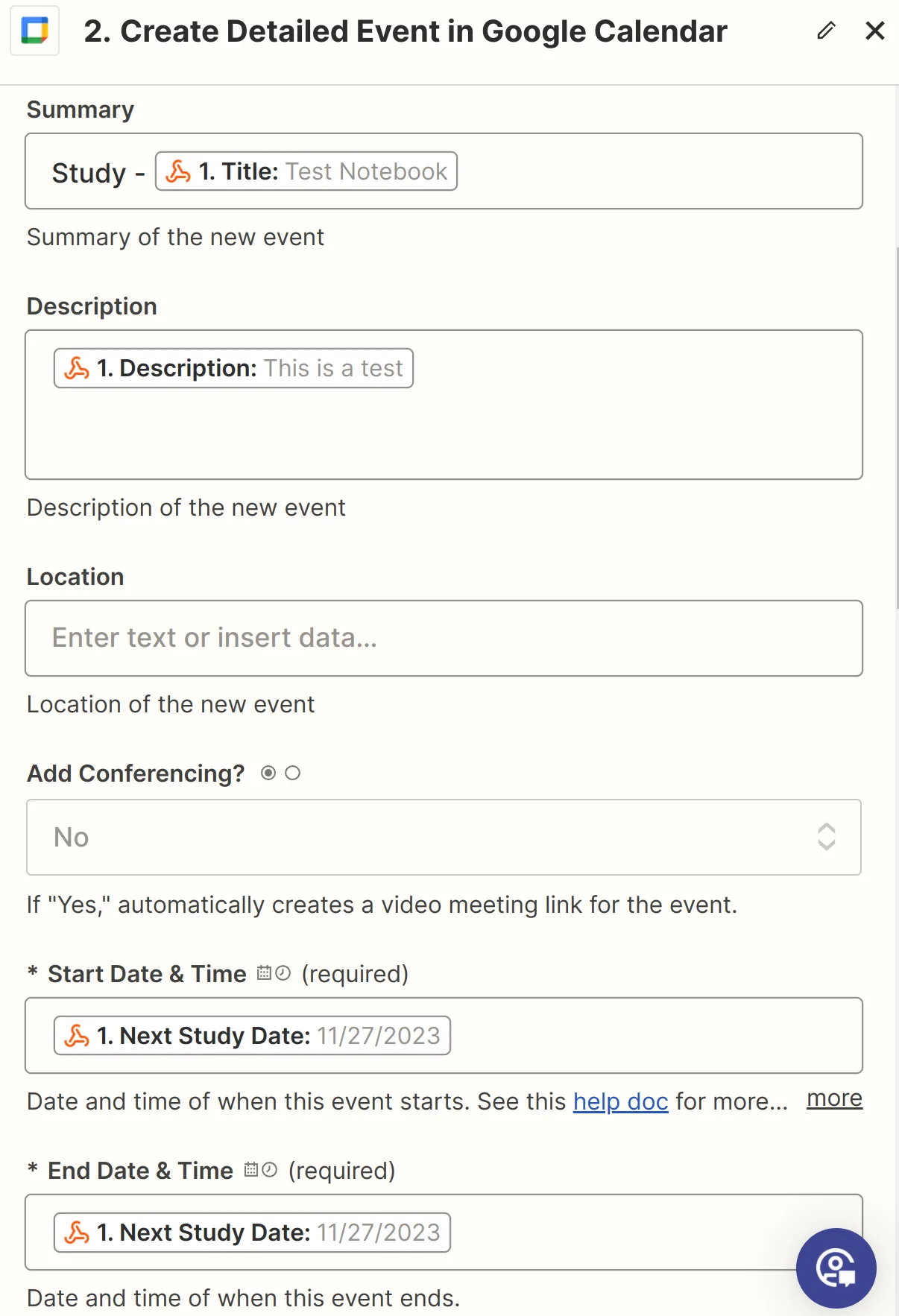
Publishing the Webhook
Section titled “Publishing the Webhook”Now we’re ready to publish. You can press the Test Step button in Zapier to manually test the complete process. If everything is configured correctly, you should see the event in Google Calendar.
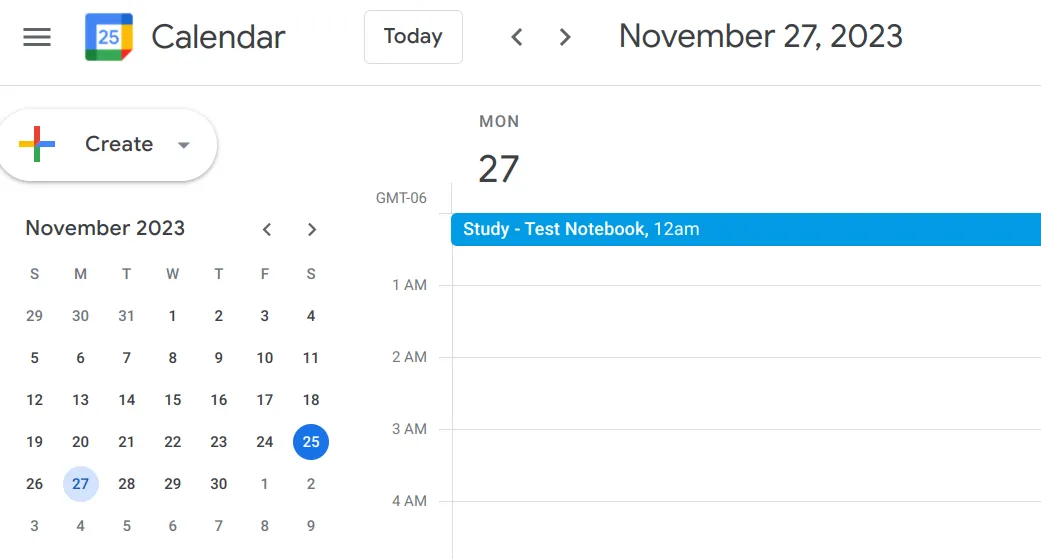
Testing the Webhook Live
Section titled “Testing the Webhook Live”Our example used the various Test buttons in Flotes and Zapier to simulate an event with test data.
To use the webhook with real data, complete a study session via the study view. Once complete, Flotes will send a payload of real data to Zapier, which will then schedule our next optimal study date in our Google Calendar.